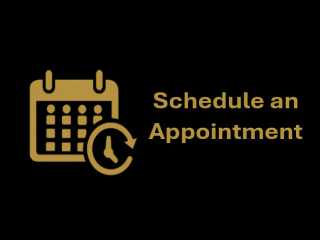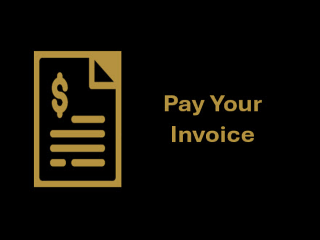One of the most common questions about bankruptcy is how does bankruptcy chapter 13 work in Louisville or anywhere in Kentucky? There are two options in bankruptcy for a person or spouses: Chapter 7 and Chapter 13. Chapter 13 bankruptcy is known as a “reorganization” and sometimes called a “wage earner’s” bankruptcy as it allows the filer(s) to use their income to keep the assets they wish to preserve and restructure their debts and payments under a three-to-five-year plan of repayment.
This is quite different from a Chapter 7 bankruptcy is known as a “liquidation,” where the debtor retains a specific amount of their assets and personal property while discharging all other debts (secured and unsecured).
Chapter 13 will allow you to determine which assets you are able and choose to keep based upon exemptions provided by federal and Kentucky law, your income and the types of debt you are currently working to manage (secured and unsecured). How does bankruptcy chapter 13 work for most people? Who is able to file a bankruptcy chapter 13 and what are some of the pros and cons of this type of bankruptcy?
Who Can File for a Chapter 13 Bankruptcy Reorganization?
You must be an individual or spouses filing a joint petition or individual petitions in order to file for a Chapter 13 bankruptcy. Corporate entities or partnerships are not eligible to file, but you are eligible if you are employed by a company or self-employed or own a business that has not been incorporated. You must have a source of documentable regular income to be eligible for bankruptcy chapter 13.
Those filing for the protections of a Chapter 13 bankruptcy must receive credit counseling before filing for a Chapter 13 (or Chapter 7) as well as additional education prior to the discharge of their debts (known as “debt counseling” or “debtor education”).
These are fairly inexpensive courses often taken online and designed to help to determine if it is possible to regain a stronger financial position without filing for bankruptcy (have you explored every option?) and to teach you how to effectively manage your financial life and budget your income in order to complete bankruptcy successfully.
What Do I Need to Know about Chapter 13 and How Does Bankruptcy Chapter 13 Work?
How does bankruptcy chapter 13 work and what do I need to know in general? Chapter 13 bankruptcy works for those who have income but are up against substantial financial difficulties and have fallen behind on their payments. Chapter 13 bankruptcy often involves those who are facing foreclosure or repossession, as well as those who have assets they wish to keep and have the income to pay many of their debts, but not all of them.
Those who file for Chapter 13 bankruptcy are reorganizing their debt into a 3 to 5 year plan of repayment. Bankruptcy puts an immediate hold on any and all collections while you work with your bankruptcy attorney from the Law Offices of John Schmidt & Associates to work through specified calculations to determine the assets to be protected, the debt to be paid and the debt to be discharged. Priority debts are first in line and must be paid in full. This includes most tax-related debt as well as obligations such as spousal maintenance (alimony), child support and other bankruptcy fees.
Secured debts are loans tied to a specific asset such as a house or car. A Chapter 13 reorganization requires the debtor to repay at least the value of the associated asset (collateral) you wish to keep.
The final type of debt is known as “unsecured.” These include credit cards and other types of debt which are not secured by some form of collateral. Unsecured debts are last in line to be repaid and are often not paid in full or discharged in full. Your income and its relationship to the Kentucky median for similar situations will help to determine the length of your plan.
What are the Pros and Cons of Chapter 13?
What are some of the pros and cons of a Chapter 13 bankruptcy in Louisville or anywhere in Kentucky? The most important reasons to consider a Chapter 13 bankruptcy are to prevent a foreclosure on your home and/or repossession of your car while keeping most or all of your assets and personal property. Chapter 13 puts an immediate full stop to all collection efforts and contacts by creditors including all the harassing phone calls, texts, emails and mail.
It is usually possible to lower payments on secured assets and work out a plan to repay the amounts you are behind on. If you have more than one mortgage on your home you may be able to eliminate part or all of that debt. This also helps to protect those who may have cosigned on any debt you have. It is possible to discharge unsecured debt as well as part or all of some back taxes and student loan debt. It is possible to pay things off early and come out of a Chapter 13 bankruptcy.
Reorganizing your debt under a Chapter 13 bankruptcy means you will be able to keep your assets but priority and secured debts will probably have to be repaid in full. Those in Chapter 13 make payments to the trustee or Court and any surplus disposable income must go to repaying unsecured debt. This means you have a pretty fixed budget throughout the repayment process. Your Chapter 13 bankruptcy will remain on your credit report for at least 7 years (10 if it is not discharged) and will reduce your credit score and affect your ability to gain attractive financing for a while.
A Shepherdsville Bankruptcy Attorney with More than 20 Years of Experience
Are you facing foreclosure or repossession? My name is John Schmidt and I have been an attorney for almost 25 years serving the people of Shepherdsville, Mount Washington, Shelbyville, Taylorsville, Radcliff, Elizabethtown, Jeffersontown and Louisville, Kentucky.
How does bankruptcy Chapter 13 work and is it right for you? If you are tired of the harassment of creditors and want to learn how to protect your house, car(s) or other assets and personal possession I can and will help. It doesn’t cost you anything to open a conversation and learn more about your options for bankruptcy and whether it is something you should consider.
We invite you to contact us via e-mail, schedule an appointment or call us today at (502) 509-1490 to get the answers you need and relief from financial challenges and creditors. We serve individuals and spouses in Jefferson, Bullitt, Hardin, Spencer, Shelby and Oldham counties in Kentucky.





